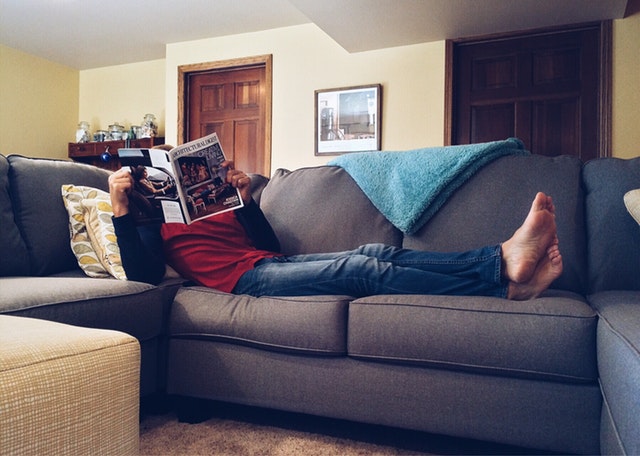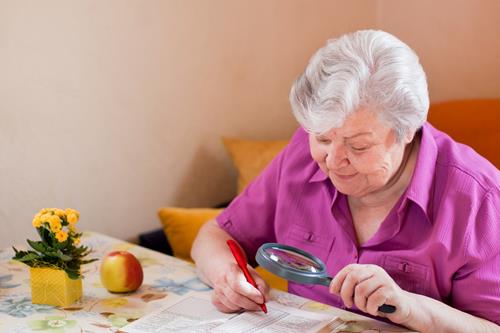
Living with an aging parent comes with its own set of unique challenges, many of which you won’t have anticipated. In some ways, the process is like having a roommate but the process is also more complicated because of the caregiving relationship.
One complexity that’s important to consider is finding privacy as a caregiver. For some people, this can be a serious issue, especially as you are sharing a house with the person you’re caring for.
What’s more, a lack of privacy can have impacts on your mental health, your stress levels and even your physical health. For example, it can be difficult to relax and unwind if you don’t have a safe space to do so. In the long-term, that issue can easily contribute to caregiver stress and burnout.
As a result, it’s critical to tackle privacy as a caregiver early. This isn’t just for your own benefit either. Taking steps to avoid burnout helps to ensure that you are able to provide high-quality care consistently. When people don’t do this, they often find that they become increasingly stressed over time and their ability to offer care and support decreases dramatically.
Finding Physical Privacy
Everybody needs privacy and the chance to feel safe, especially in their own house. Yet, caregiving often puts this at risk, especially when you are caring for somebody 24/7.
To make matters worse, disinhibition can occur as a symptom of dementia, which is a loss or decrease in social appropriateness. When that happens, your family member may even enter the bathroom when you’re in there, or something similar.
Finding privacy is also a balance.
After all, making a family member feel unwanted is not a good strategy and may make the senior feel like they are being ignored. As such, you need to develop approaches that are realistic and that work well for your situation.
Thankfully, there are some solutions that can help you have privacy.
Create Individual Spaces

One of the most powerful approaches is to have safe spaces for everybody.
Realistically, people should have a place where they feel comfortable and this is true for you, the person you’re caring for and anyone else in the family.
A key component of this is creating a place for the senior to feel comfortable and relax. This might be their bedroom or a different room. Some things to consider include a comfortable chair, a bookcase/some books, a TV set and/or a radio.
Creating this type of space gives the senior somewhere to go and relax, without being in a family room. For one thing, that process helps them to have privacy as well. But, it also means that you decrease how often people are stepping on each other’s toes.
When you have a space like this for each person, yourself included, the concept becomes more reasonable. In particular, the senior won’t feel like they’ve been shut out, because they have their own similar place.
Achieving this will often take careful planning, especially for anyone in a small house. But, it is possible. If you can’t set aside whole rooms, you may be able to set aside spaces instead.
For example, some caregivers turn to gardening as a way to get space and find some privacy. Others may have a specific space away from the house, whether that is in a shed or sleepout, or down the road at a coffee shop.
I was lucky as a caregiver in that I had an upstairs study, where I worked from home. That because a default place for me to have to myself, simply because neither of the people I was caring for could climb the stairs.
Establish Rules
Setting rules and expectations in place can also help with managing privacy. For example, one person shouldn’t be able to use the TV in a shared room constantly, especially if others cannot stand the sound of TV.
What rules you use will strongly depend on the situation and your needs.
Likewise, be aware that rules will not always be effective, especially for seniors that have dementia or any other type of cognitive impairment.
Use Locks
In some cases, you may also need to use locks and similar restrictions – especially for seniors with cognitive limitations.
This technique is mostly relevant for stopping seniors wandering into bathrooms. In contrast, locking seniors out of your room when you are simply taking a break risks being offensive.
With that in mind, if you do need to be without interruption, getting out of the house is normally the best approach.
Finding Emotional Privacy as a Caregiver

Physical privacy is important but you will often find that you need a degree of emotional separation as well. In particular, caregiving often ends up being a 24/7 role, which isn’t something that people can emotionally cope with.
For example, some people have somewhere they can go for privacy but they are never truly on my own.
This was a challenge I faced as a caregiver because I always had to stay on alert for any issues. So, even when I was trying to relax, I could never fully unwind. The issue got so bad that I couldn’t even sleep well, as I was afraid of being needed and not knowing it.
Realistically, nobody can handle being on call 24/7, not in the long-term. So, you have to find ways to give yourself some space emotionally as well as physically.
Often, this simply involves taking time off.
To do so, you may have to get other family members involved or even look into respite care. Taking this approach gives you the chance to refuel mentally and to live your own life.
Other important directions include the following:
Don’t Cancel Events or Vacations

As a caregiver, it can be tempting to cancel various events and vacations. And, there may be some cases where doing this is necessary. But, whenever possible, it’s important to do them anyway.
In some cases, this may involve finding somebody to look after the senior while an event is going on or it may be necessary to bring them along.
The reason for this is that it’s easy to simply stop living when you’re caregiving. Doing so isn’t healthy, especially as caregiving often ends up being for a longer space of time than you initially assume.
Get Other People Involved.
It’s easy to think that you’re the only person who can care for your family member. But, in most cases, this isn’t true. Instead, you can typically get others involved, even for a short time, to give you a break.
This is even true if you don’t think you can get help as a caregiver. In most cases, if you ask for help in the right way, you will find some support.
You can also look into respite care and/or see what services are available in your local area. It may take some time to determine the best approach but it’s normally possible to find at least one avenue for getting other people involved.

Leave a Reply